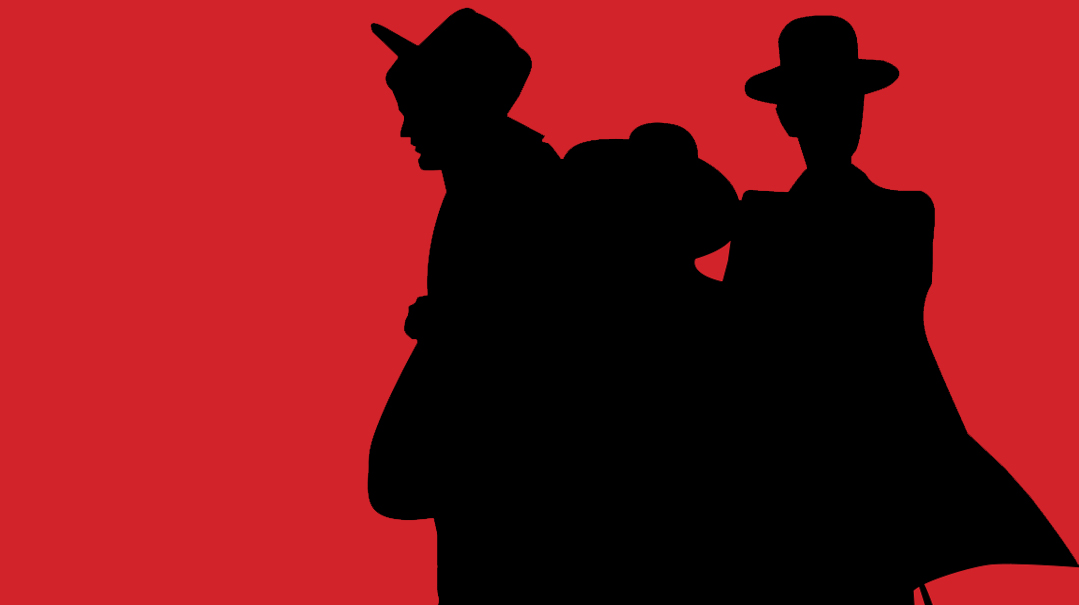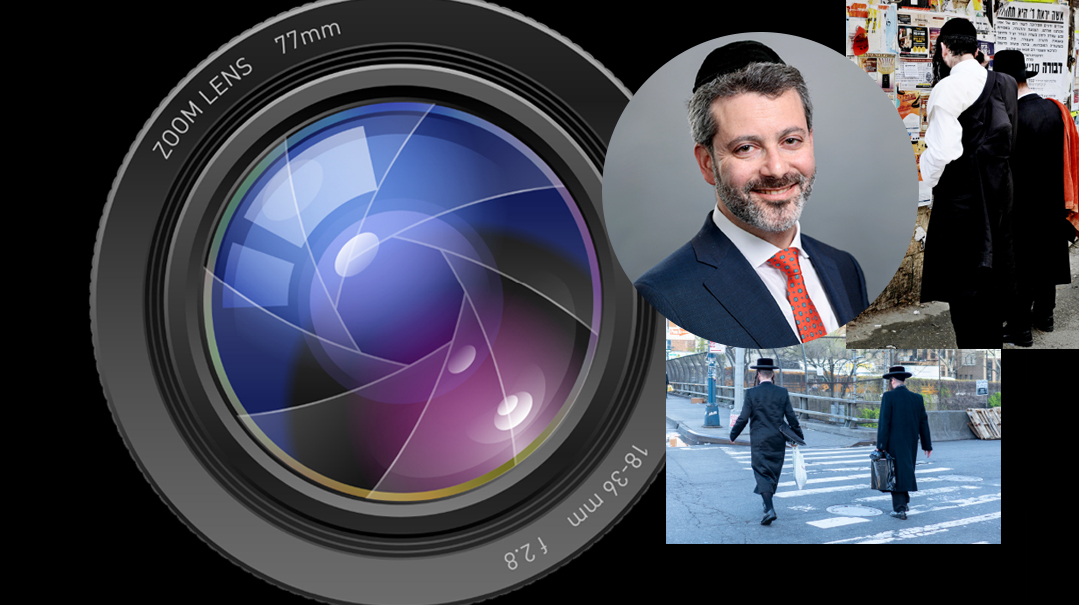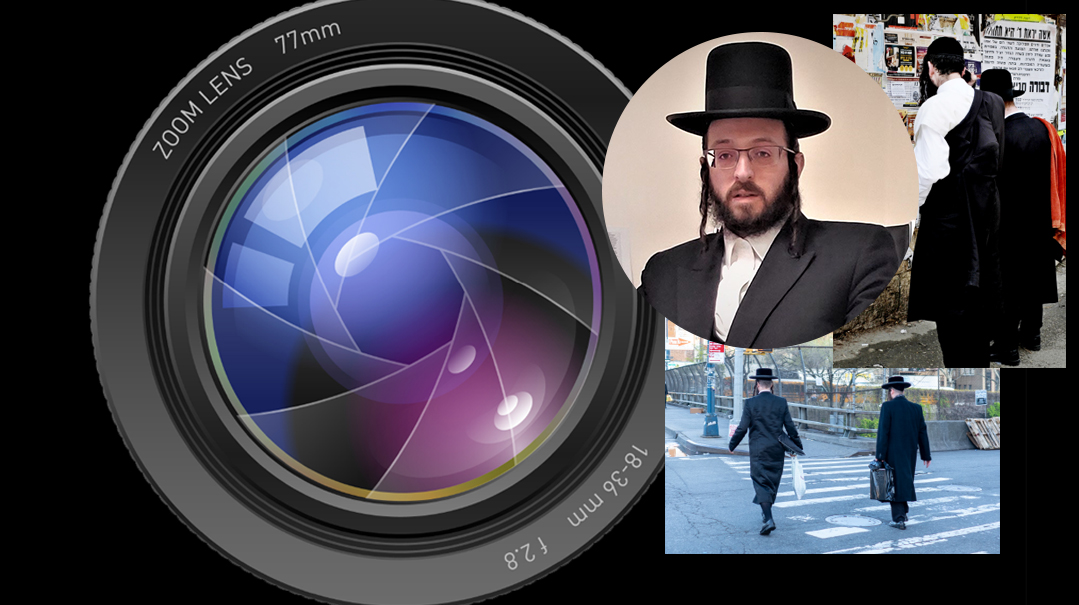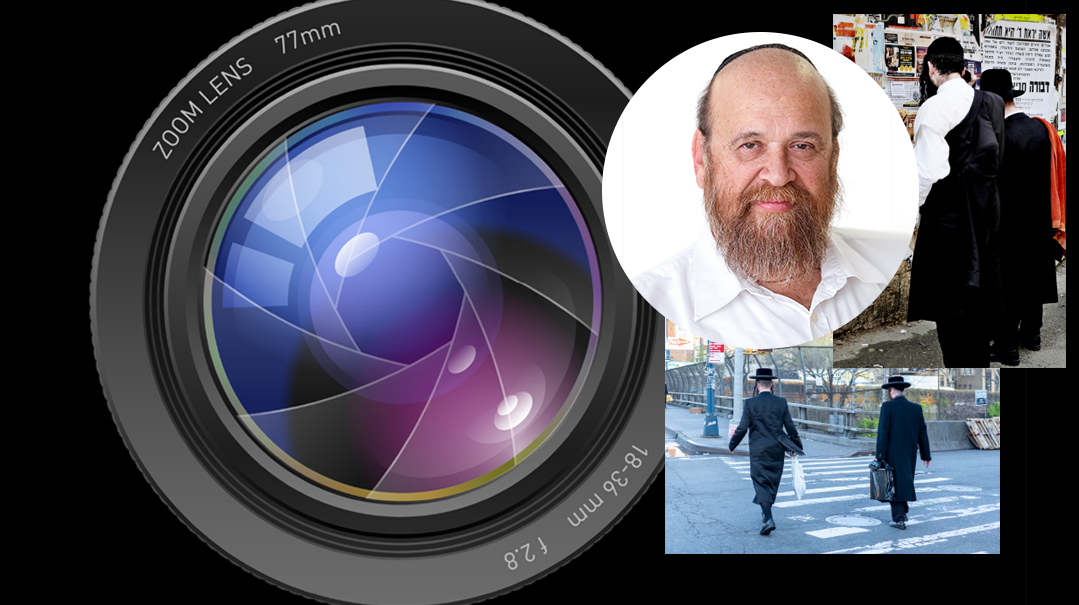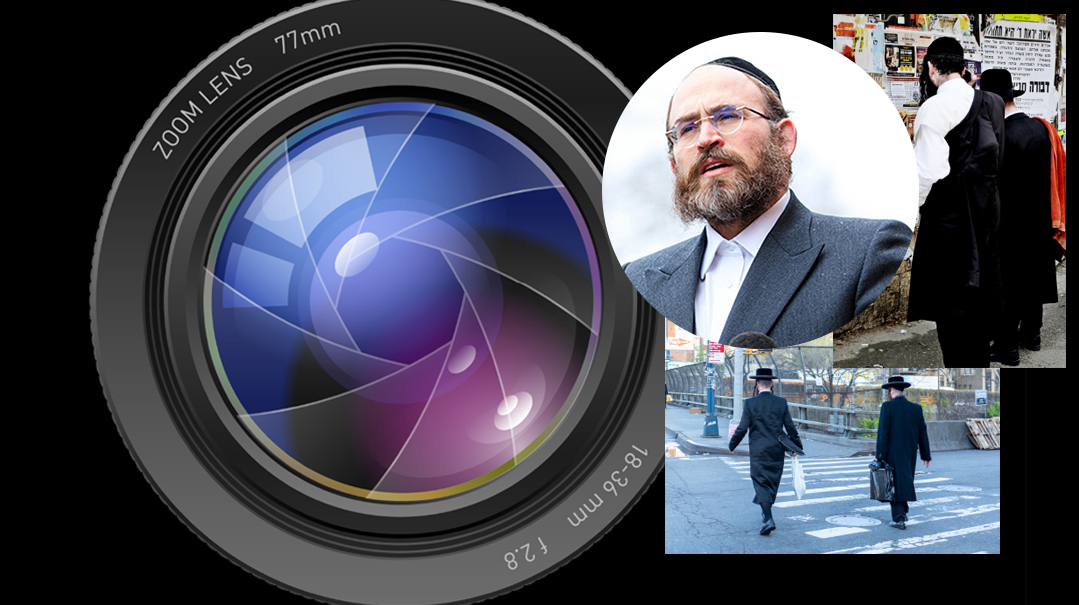Assemblyman Simcha Eichenstein: Your Real Victory

"Make a kiddush Hashem whatever you are. If you walk around with a yarmulke on your head, remember that you carry with you the appearance of a frum Jew"
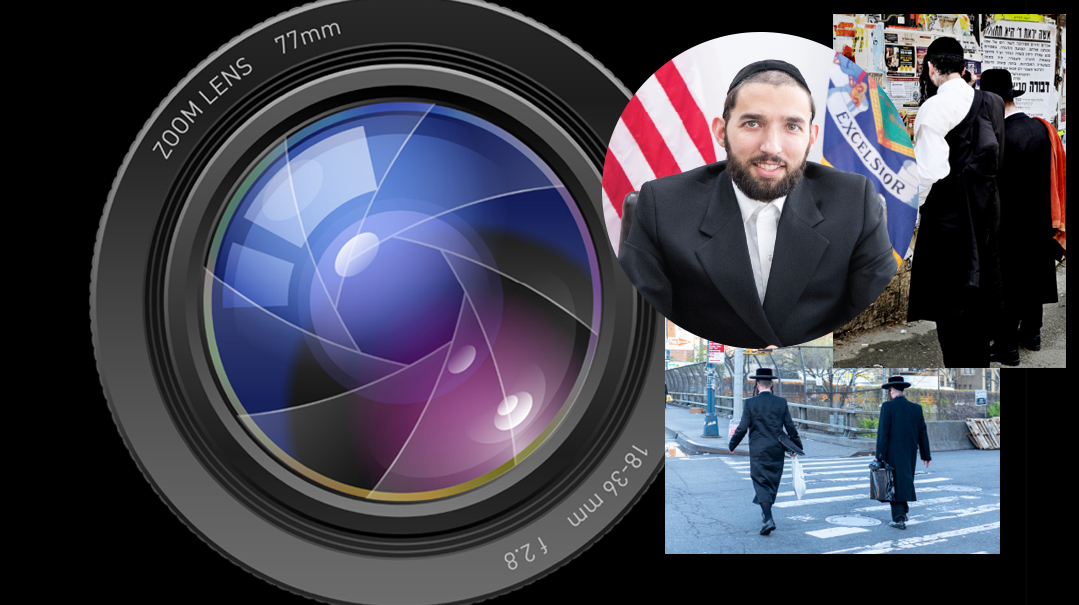
Simcha Eichenstein was elected to the New York State Assembly in 2019 after serving as the legislative liaison for Mayor Bill de Blasio. Before that, he was a senior advisor to state comptroller Thomas DiNapoli. Eichenstein and State Senator Simcha Felder represent not only their constituents in the Assembly, but Orthodox Jews to their fellow legislators. Now 36, married with five children, Eichenstein has made friends and disarmed opponents with his serious work ethic and friendly demeanor. Most of all, he says, he has worked to present a positive image of the community in Albany.
Interviewed by Yochonon Donn
The Orthodox community is seemingly the only minority that can be scorned by the media and pundits without fear of pushback. What do you see as the most dangerous aspect of the way we are portrayed and perceived in the public?
The most dangerous aspect is when the mainstream media tries to portray us as a community that either wants to live by a different set of rules or as a people that, as it relates to a particular law, feel they are above the law. That is the furthest thing from the truth. They do this perhaps because we are misunderstood or because they do not care to understand what’s actually happening on the ground.
I see that you responded to New York Times education reporter Eliza Shapiro’s tweet that yeshivos do not provide a good education. It’s amazing how some of these reporters can so flippantly claim falsehood as the truth.
That’s another perfect example of reporters not even caring to understand the issue, yet stating as factual that we don’t do X or that we do do Y, or how dare a mayoral candidate take a stand on an issue that she doesn’t even understand. There is no doubt that our children get a stronger education than their counterparts in the public school system — whether you base it on instruction time or on curriculum.
Reporters must understand the issue before they throw out these blanket statements. And education is one of many examples of how the media gets distracted by side issues. By now, it’s not even claiming bad education, it’s about whether we are allowing the Department of Education into the buildings or we’re not allowing — it’s about everything but understanding what my son does at school every day. My son goes to school earlier than public school students in the same grade, comes home later, and there’s no doubt in my mind that he gains a higher quality education and better critical thinking skills, even as it relates to secular studies.
They are trying to make the yeshivah issue into an “us versus them,” and how the community wants to live by its own set of rules. This is just not the case. We believe we are providing a sound basic education while at the same time ensuring that parents have their constitutional right to choose the path to their child’s education. This means that the government should have no say in the religious component of the day.
There are three possibilities as to why we are perceived by the public as different. One is our lifestyle — we are not going to stop doing kapparos or change our yeshivos, for example. Another is mistakes we make that get amplified by the media. And a third is misunderstandings or miscommunication. Which one do you think contributes the most to our negative image?
I think for the most part it is because of misunderstandings. Is it true that we have a different way of life? Yes. But oftentimes it is misunderstood, and we need to reach out to those outside the community and explain our way of life.
I deal with this very often with my colleagues in the state legislature. But I find that when I reach out and engage with them, explain to them our way of life and how beautiful our community is, it is an eye-opener for them. A lot of them do not necessarily represent Jewish neighborhoods and are just generally unaware.
Let me give you an example. The WIC program, which gives food basics to young children, did not in the past include the option of food with stricter hechsherim that are used by the heimishe community. When I first came into office, I heard from a lot of people that this had been an issue for a long time. The problem is that the Health Department does not begin to understand what the issue is here — they say, “We have kosher products, why is that a problem?”
I reached out to Assemblyman Richard Gottfried, who is the chair of the Health Committee, sat down with him and explained how hechsherim work, that many people have a higher standard and won’t eat anything else. Gottfried agreed to join forces with me, and together we went to the Health Department. We were ultimately able to add a bunch of new products from Mehadrin, Beechnut, and other baby formulas.
This is a perfect example of how far engagement can go. It’s not that the decision-makers don’t want to accommodate our basic needs, it’s just that sometimes they really do not understand them. They couldn’t understand why, if they had all these kosher products on the list, we were making this request. We simply explained to them what kosher supervision means and why some communities are stricter than others, and the fact that a certain food item has a kosher logo doesn’t necessarily mean it works for everyone.
To an outsider, this would just be looked at as an example of how, in the Orthodox community, “again they want more.” But this is not about wanting more, this is about saying that for people who have stricter standards of hechsherim, despite this being kosher, it won’t work for them.
In the secular world, political representatives are seen as leaders of their communities Do reporters and journalists regularly come to you asking for insight the Orthodox community?
Of course. All the time.
Do you find that their reporting is fair after you speak to them?
Unfortunately not.
Then let me rephrase the question. Do you feel that your conversations help bend the arc of the story more toward the truth?
Every reporter is different. Some reporters have very strong personal agendas and incorporate that into their writing, particularly on the local city level. But there are reporters who are very reasonable, and it is our responsibility to engage with them and to explain to them who we are, so that when they explain it to the outside world, they are not portraying a negative image of our community.
This is a very important portion of my job. Sometimes this can be very time consuming — you have to sit with them, you have to explain things to them, they want to follow up. But this is something that is certainly worthwhile.
What do you wish every starting journalist knew about our community?
Don’t make assumptions. Have a willingness to engage and understand our community and the issues at hand before you write an article.
What assumptions in particular do you find that journalists make about our community?
The list goes on and on, unfortunately, whether it’s long-term issues such as education, or short-term such as the COVID situation. Take the red zone lockdown, for example. Whenever you had a few Orthodox Jews in a room, it became a whole story. But many reporters never bothered to understand what actually happened.
Just to give a brief history — in March, we shut down all our shuls and schools, and our rabbanim told us to stay at home. The governor then decided that our shuls and yeshivos are not essential, and pushed their reopening until phase four, the last step of the state’s reopening plan. Phase four — think about that. By that time, everything from liquor stores to beaches and theaters were able to be open already. Yet houses of worship were pushed back to phase four.
To the religious community, houses of worship are most essential — our entire way of life surrounds shuls. We daven there three times a day. So this was not just about a group of people who are having large events, it’s a community that is telling you — this is most essential for us. This was at the same time that our government was telling thousands of people to go protest — outdoors and wearing a mask, for sure. They should have told us that we, too, could do outdoor services. This was a total different set of standards.
The reality is that the Orthodox Jewish neighborhoods were the only ones that were placed in a red zone. Remember when the governor announced that there was going to be a new micro-cluster model moving forward? My district was then close to 6 percent positivity, and we were placed in a red zone in the middle of a holiday. Just a couple of weeks later, three micro-cluster neighborhoods in Westchester were double that rate. None of them went beyond orange zone.
And you feel that Cuomo was able to get away with it because of the way our community was portrayed by the media?
Let me throw the question back at you: Where were the reporters asking the governor that question? Where is the fair reporting?
How can the average frum Jew be a good ambassador for the community?
Make a kiddush Hashem whatever you are. If you walk around with a yarmulke on your head, remember that you carry with you the appearance of a frum Jew.
When I first ran for office, I visited a prominent rebbe in the community. He told me, “Simcha, remember one thing. Before any vote you can take, before any speech that you can give, just when you walk into a room, remember that your number one responsibility is to make a kiddush Hashem. You are going to be in Albany, they are all going to look at you and will, fairly or unfairly, rightly or wrongly, paint a picture in their mind of an entire community based on what they see. And that is entirely your responsibility.”
I do not take that lightly. I try to remember that every single day. And the same is true with every frum Jew, wherever they may be — whether it is your business partner or whether you are sitting on a plane. The way we conduct ourselves, the way we speak, the respect that we show to each other — that is what makes a kiddush Hashem.
People have to think about this a little bit. I am not chas v’shalom giving anyone mussar, but we are having an open conversation, discussing it together. Sometimes you are driving on the road and you cut someone off — maybe that person is a prison guard on his way to work, and he now sees that a frum Jew cut him off. You won the fight — you are one car ahead. But you know what? When he arrives at work, maybe some Jew will feel the brunt of your victory.
(Originally featured in Mishpacha, Issue 852)
Oops! We could not locate your form.







